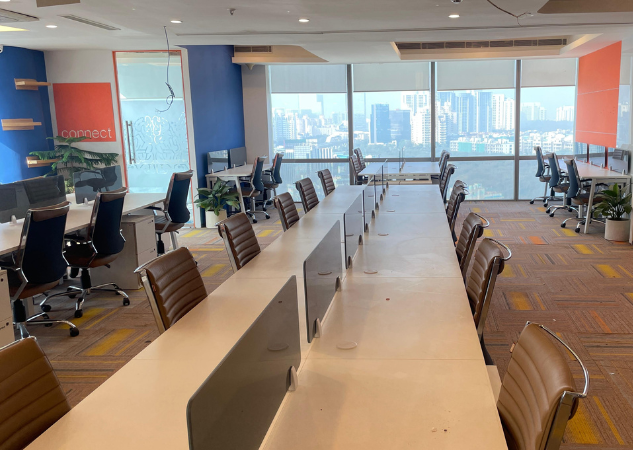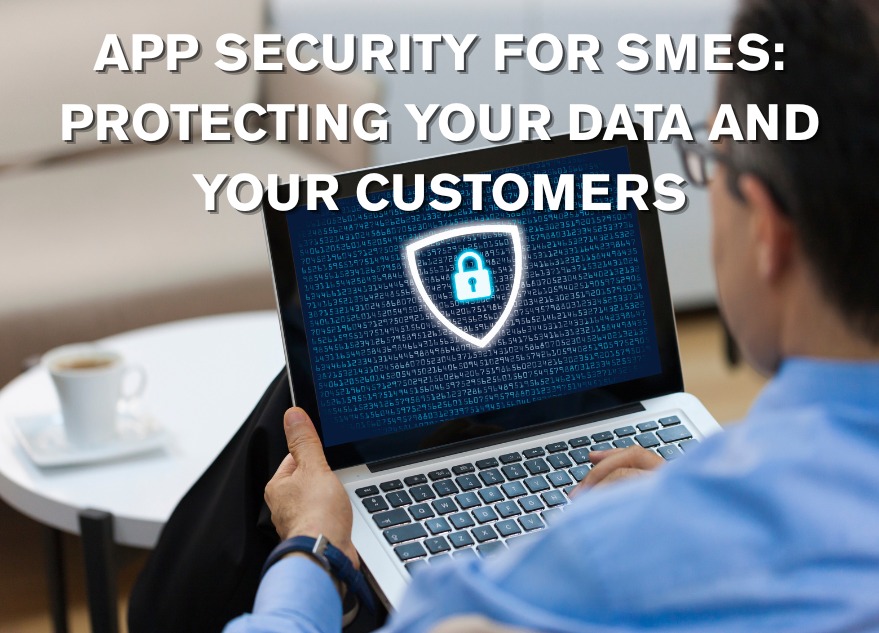In the digital age, mobile and web applications have become essential tools for Small and Medium-sized Enterprises (SMEs) to engage with customers, streamline operations, and drive growth. However, the increasing reliance on these applications also exposes businesses to significant security risks. Cyber threats, such as data breaches, ransomware attacks, and unauthorized access, can lead to severe financial losses, reputational damage, and regulatory penalties. Let us learn some strategies to ensure your data and your customers’ data remain secure.
💡 Are you looking for Coworking space in Gurgaon, Noida or Delhi? We are just a call away.
Call Now: 08999 828282
10 Best Strategies to Ensure Your Data and Your Customers’ Data
- Implement Strong Authentication Mechanisms
- Encrypt Data
- Regularly Update and Patch Software
- Secure APIs
- Conduct Regular Security Audits and Penetration Testing
- Train Employees and Users
- Implement Access Controls
- Monitor and Log Activity
- Backup Data Regularly
- Prepare an Incident Response Plan

1. Implement Strong Authentication Mechanisms
- Use Multi-Factor Authentication (MFA): Add an extra layer of security by requiring multiple forms of verification.
- Enforce Strong Password Policies: Encourage users to create complex passwords and change them regularly.
2. Encrypt Data
- Data Encryption: Ensure all sensitive data is encrypted both at rest and in transit.
- Use HTTPS: Secure communications between your app and users with HTTPS to prevent interception.
3. Regularly Update and Patch Software
- Stay Updated: Regularly update your software and libraries to fix vulnerabilities.
- Automated Patching: Use automated tools to manage and apply patches promptly.
Also Read: How to Improve Your SME’s Credit Score for Better Financing Opportunities
4. Secure APIs
- API Security: Ensure your APIs are secure by using proper authentication and encryption methods.
- Limit Exposure: Only expose the necessary endpoints to reduce the attack surface.
5. Conduct Regular Security Audits and Penetration Testing
- Security Audits: Regularly review your security policies and practices.
- Penetration Testing: Simulate attacks to identify and fix weaknesses before they can be exploited.
6. Train Employees and Users
- Security Awareness Training: Educate employees about common security threats and safe practices.
- User Education: Inform users about best security practices, such as recognizing phishing attempts.
7. Implement Access Controls
- Role-Based Access Control (RBAC): Limit access to data based on user roles to minimize risk.
- Least Privilege Principle: Ensure users have the minimum level of access necessary to perform their tasks.
8. Monitor and Log Activity
- Activity Logs: Keep detailed logs of user activities to detect and respond to suspicious actions.
- Real-Time Monitoring: Use monitoring tools to identify and respond to threats as they occur.
💡 SMBs looking for HR, Marketing, Technology and Funding solutions for their business.
Call Hello Jarvis 994 8000 800
9. Backup Data Regularly
- Regular Backups: Ensure regular backups of all critical data to recover quickly from breaches or data loss.
- Secure Backups: Store backups securely and test them regularly to ensure they can be restored when needed.
10. Prepare an Incident Response Plan
- Incident Response: Have a plan in place to quickly respond to security incidents and minimize damage.
- Communication Plan: Establish clear communication channels for reporting and managing incidents.
To conclude, protecting your app and your customers’ data requires a comprehensive approach that combines technology, processes, and education. By implementing these best practices, SMEs can significantly enhance their security posture and reduce the risk of data breaches. The Office Pass (TOP) co-working spaces available in Delhi and NCR can help you protect your data and customers. TOP offers all the modern-day facilities and relaxation areas to employees, keeping them motivated all throughout the day for enhanced productivity at work. Contact us for more details at 08999 828282.
FREQUENTLY ASKED QUESTIONS (FAQS):
Question: What are the most common security threats to apps used by SMEs?
Answer: Common security threats to apps used by SMEs include phishing attacks, malware, ransomware, data breaches, SQL injection, cross-site scripting (XSS), man-in-the-middle (MITM) attacks, and insider threats.
Question: How can SMEs ensure their apps are secure from the development stage?
Answer: Implement secure coding practices, conduct regular code reviews, use automated security testing tools, follow OWASP (Open Web Application Security Project) guidelines, and ensure developers are trained in cybersecurity best practices to ensure apps are secure from the development stage.
Question: What is the role of encryption in app security, and how should SMEs implement it?
Answer: Encryption protects data by converting it into a coded format that is unreadable without the correct decryption key. SMEs should use encryption for data at rest and in transit, using strong algorithms such as AES (Advanced Encryption Standard). Implementing SSL/TLS for secure communications and using end-to-end encryption for sensitive data are essential practices.
Question: How often should SMEs update their app security measures?
Answer: SMEs should continuously monitor and update their security measures. Regular updates should include patching vulnerabilities as they are discovered, updating software and libraries, conducting periodic security audits, and staying informed about the latest security threats and trends.
Question: What are some best practices for securing user authentication in apps?
Answer: Best practices for securing user authentication in apps include implementing multi-factor authentication (MFA), using strong and unique passwords, incorporating biometric authentication if possible, and employing session timeouts and account lockout mechanisms to prevent brute-force attacks.
Question: How can SMEs protect customer data in their apps?
Answer: SMEs should collect only the necessary customer data, store it securely using encryption, ensure compliance with data protection regulations (such as GDPR or CCPA), implement access controls, and regularly back up data. Providing transparent privacy policies and obtaining explicit consent from users for data collection are also important.
Question: What steps can SMEs take to secure their APIs?
Answer: To secure APIs, SMEs should use strong authentication and authorization, implement rate limiting to prevent abuse, validate input data to avoid injection attacks, use HTTPS to secure data in transit, and regularly monitor and audit API activity.
Question: How important is it for SMEs to conduct security training for their employees?
Answer: Security training is crucial as employees are often the first line of defense against cyber threats. SMEs should provide regular training on recognizing phishing attempts, secure password practices, data protection principles, and responding to security incidents. A well-informed workforce can significantly reduce the risk of security breaches.
Question: What are the key elements of an effective incident response plan for SMEs?
Answer: An effective incident response plan should include clear procedures for identifying, containing, eradicating, and recovering from security incidents. It should define roles and responsibilities, establish communication protocols, include a plan for preserving evidence, and ensure regular testing and updating of the plan to address new threats.
Question: How can SMEs leverage third-party security services to enhance app security?
Answer: SMEs can enhance their security posture by using third-party services such as managed security service providers (MSSPs), security information and event management (SIEM) systems, vulnerability assessment tools, and penetration testing services. These services provide expertise and resources that SMEs may lack internally, helping to identify and mitigate security risks more effectively.



